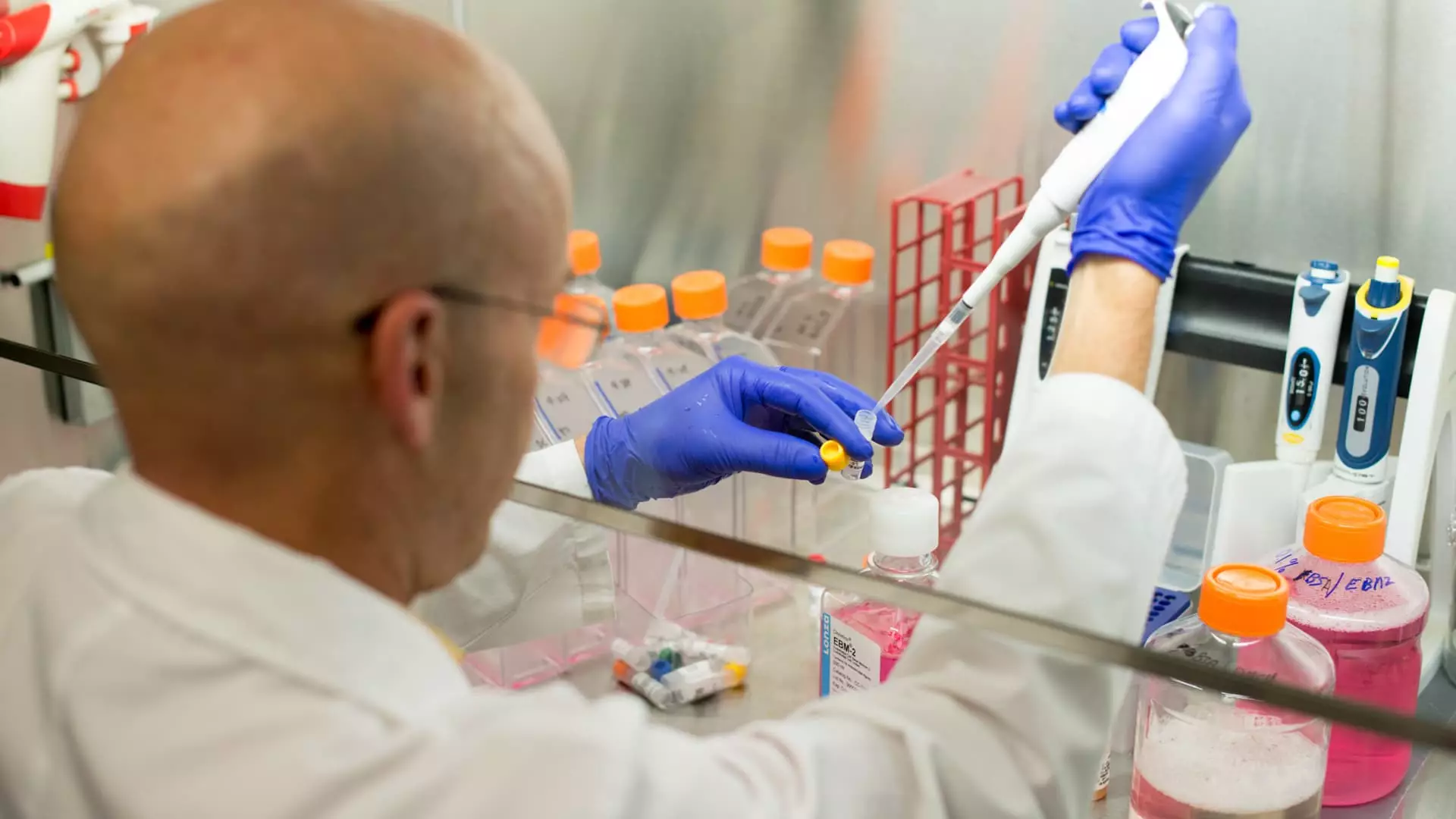In the rapidly evolving world of biotechnology, Recursion Pharmaceuticals has recently marked a significant milestone with its innovative use of artificial intelligence (AI) in drug discovery. Announcing that it has secured regulatory approval for its experimental treatment REC-1245, Recursion is not only making strides for its own operations but also advocating for the potential of the broader techbio industry. The achievement signals an important convergence of AI technology and healthcare, showcasing the ability to expedite drug development processes.
The age-old challenges of drug discovery—long development times, high costs, and the unpredictability of trial outcomes—have driven researchers and companies to seek novel technological solutions. Recursion Pharmaceuticals has embraced this challenge and, within 18 months, has leveraged its advanced AI-enabled platform to identify promising biological targets and match them with candidate drugs. This rapid pace of progress indicates a revolutionary potential to streamline the drug development process, which has traditionally been mired in lengthy trial-and-error phases. Such innovation is pivotal, especially for addressing urgent medical needs in oncology, where time is often not on the side of patients.
By successfully targeting RBM39, a biomarker associated with various solid tumors, Recursion demonstrated that AI can sift through large biological data sets to pinpoint drug targets that may otherwise be overlooked. “This is the first program that really is leveraging many of these new tools that we’ve built in one unit,” stated CEO Chris Gibson, suggesting that Recursion’s methodology will not only aid its own pipeline but may also serve as a blueprint for similar companies in the biotech field.
One of the more compelling aspects of REC-1245 is its potential market impact. Recursion estimates that over 100,000 patients across the U.S. and European Union could benefit from this treatment, representing a substantial opportunity for both the company and the healthcare system. As the company moves forward with Phase 1/2 clinical trials slated to begin soon, it will assess the safety and tolerability of the drug. The results from the dose-escalation phase are anticipated by the end of next year, adding an air of anticipation surrounding the endeavor.
However, with the healthcare landscape being highly competitive and often unpredictable, success in clinical trials does not guarantee market penetration. Investors are keeping a close watch on Recursion, particularly after its stock experienced a decline of 38% in 2024. This scrutiny highlights the skepticism that often accompanies new ventures in the techbio sector, as the gap between promise and reality still looms large for many investors.
Despite the potential implications of AI-backed solutions in the pharmaceutical landscape, market performance has not always aligned with expectations. As Recursion prepares for its merger with AI drug discovery competitor Exscientia, analysts remain divided on the company’s stock. While some advocate for holding shares, others have issued buy ratings, reflecting the mixed sentiment that investors hold regarding Recursion’s long-term prospects. The average analyst price target of $10.14 suggests that there could be a significant upside, potentially indicating a 64% return for those willing to take the risk.
This forecast emphasizes the need for Recursion to not only deliver results in clinical trials but also to effectively communicate its findings and progress to investors. As the company seeks to sustain investor confidence, it must balance the experimentation and innovation that AI offers with the grounded realities of the pharmaceutical industry.
Recursion Pharmaceuticals stands at a critical intersection where cutting-edge technology meets urgent medical need. While challenges remain in the funding and execution of drug trials, the company’s innovative approaches signify a hopeful future for AI in drug discovery. As it continues to unveil its findings through the forthcoming clinical trials and efforts to integrate further data through its merger with Exscientia, Recursion aims to not only transform its own prospects but also to redefine the potential of biotechnology in the modern age. With a commitment to proving its model viable, Recursion is a case study of how technology can inspire change in the healthcare ecosystem—provided it delivers results that meet investor and patient expectations.

